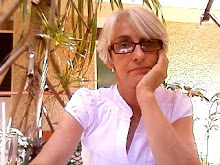The youth programme in Kingston was focused on preparing for summer camp and my work was directed in different directions. On Monday, with the assistance of another volunteer, I completed a proposal to expand the number of Peace and Justice Centres in the troubled communities across the island and providing an accessible unit cost framework. It was positively received by the Ministry to which it was submitted and immediately generated a letter of support to the funding body which is very encouraging, though a long way from a funding commitment. Then I headed out on the road with others to visit the youth programme in May Pen, Spanish Town and Montego Bay. We installed a new database developed by a volunteer a few months ago and met with the staff.
In Spanish Town the computer cafe was being actively used by a number of adolescents and the youth peace facilitator was dividing his time between the small number of youth attending the suspension programme, those using the computer centre and a group of enthusiastic young volunteers helping put the final touches to the summer camp plan. The plan looks great with the only stumbling block being the one typical of here - where will we find the very modest funds required?

It was wonderful to get out on the road and I am quickly reminded how much variety there is in this country. The drive is long, three and a half hours to cover the 180kms to Mo-bay, but quite lovely. As one winds ones
way through the narrow mountain road there is no need to go hungry. Along the way the road is lined with fruit higglers and jerk centres. I was introduced to guinep on this drive, a fruit quite similar to lychee and deliciously juicy. Some other fruits available at the moment are jack fruit, pineapple, mango, apples, june plums, and of course the perennial bananas, papaya and oranges, all ready to be eaten as one travels the road! In addition there are many small stands that offer an even wider range of fruit and vegetables, as well as fresh fish stalls. Another illustration of the dichotomy of Jamaica - despite the poverty and hunger in the city it is indeed a land of plenty.
Thursday I was back in the city and meetings in Denham Town. The plans for summer camps and family days are coming together, though it requires much discussion and clarity about the boundaries and locations of events. It felt as if those involved are becoming weary and need a boost. It has been a very difficult few months and the complexity of making significant change is occasionally overwhelming. As is not unusual in community development the leadership and energy lies with a small group who have been working arduously to make sure the current crisis is experienced as the opportunity it also provides.There remains much mistrust, anger and grief in the communities and these take there toll on those working there.
One of the things that has become evident in my nine months here is the movement on an off the island both for short absences and long. It seems to be an integral part of Jamaican life from the adults that go to "foreign" to work, the students that go to "foreign" to university, the absent parents who live "foreign" , the professionals who take their education and their intellect and emigrate to the US, Canada or the UK, and those of us that come here for work or positions and move on and off regularly. It adds a transitory air that is not perhaps a positive element and I think may limit the emotional and real investment in the island. I think it might also contribute to the limited long-term vision and lack of accountability. On the other hand is also brings a sense of linkage to the rest of the world and an awareness of other countries and cultures that has a beneficial effect. It is a component of island life that I will give more thought to as it unquestionably has an impact, perhaps both positive and negative.
Next week will provide the opportunity to audit the International Institute of Restorative Practices Training for Trainers which is being provided to support the roll out of restorative practices by the Ministry of Justice in partnership with DRF. My hope is to get insight into what the trainers and the programme will need to ensure an effective long term implementation, a process that to date has not been afforded the attention it requires.

No comments:
Post a Comment